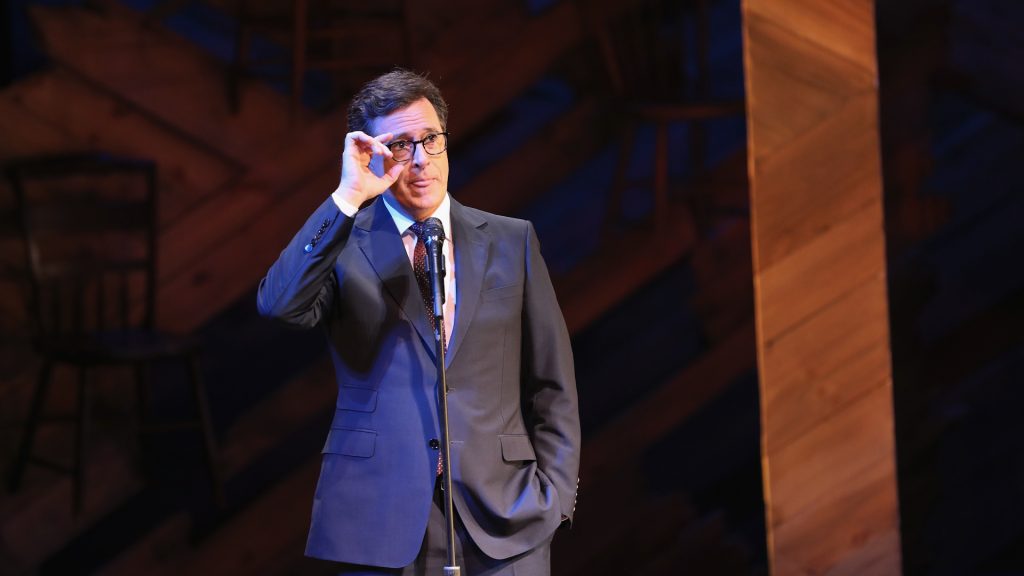Colbert’s exit marks latest casualty in late-night’s decline

CBS will end “The Late Show with Stephen Colbert” in 2026, marking the latest shakeup in a late-night landscape increasingly strained by streaming, politics and shrinking profits. The network cited financial pressures facing traditional late-night programming, but the decision has drawn scrutiny given Colbert’s recent criticism of CBS parent Paramount’s legal settlement with Donald Trump.
CBS’s move to cancel the show signals a broader transformation in late-night TV. Broadcast talk shows find it harder to stay relevant or profitable as streaming platforms dominate and viral clips race across the internet before full episodes even air. At the same time, advertising dollars are drying up.
CBS said the choice was “purely a financial decision” and unrelated to recent headlines surrounding host Stephen Colbert or the network’s legal settlement with Donald Trump. Executives confirmed the entire franchise would be retired.
Did politics influence Colbert’s cancellation?
The timing raised eyebrows. Earlier this week, Colbert criticized Paramount for settling Trump’s lawsuit over a “60 Minutes” interview that aired during the 2024 election. On air, Colbert called the settlement offensive and said it had damaged his trust in the company.
The settlement, reportedly worth $16 million, resolved Trump’s claim that “60 Minutes” misrepresented an interview with Kamala Harris. Paramount had previously dismissed the suit as meritless.
According to Variety, some industry analysts believe the settlement may help secure federal approval for Paramount’s proposed $8.4 billion merger with Skydance Media.
Several public figures questioned the network’s motivations. Sen. Elizabeth Warren, D-Mass., said on social media that “America deserves to know if his show was canceled for political reasons.”
Fellow late-night host Jimmy Kimmel responded more bluntly, writing on Instagram, “F— you and all your Sheldons CBS.”
Colbert addressed the news during Thursday’s taping. “It’s not just the end of our show, but it’s the end of The Late Show on CBS,” he told viewers. “I’m not being replaced. This is all just going away.”

What’s pressuring late-night shows?
Legacy late-night programs have struggled to adapt to changing viewer habits. Shows built around monologues, interviews and sketches must now compete with streaming platforms and viral clips that circulate minutes after broadcast. Even when viewership holds steady, networks face reduced ad revenues and higher production costs for daily live shows.
Political comedy has also become riskier in a polarized media environment. Colbert, a frequent critic of Trump, has drawn attention for his commentary throughout his tenure. The president has repeatedly targeted late-night hosts and has called for investigations into broadcasters, including NBC, CBS and ABC.
NBC renewed “Late Night with Seth Meyers” through 2028, though executives have reportedly considered format changes.
How does this fit a larger trend?
Colbert’s exit follows a broader reshuffling of late-night TV. Trevor Noah left “The Daily Show” in 2022, James Corden exited CBS’s “The Late Late Show” the same year, and TBS cancelled “Full Frontal With Samantha Bee.” Corden’s show reportedly lost $20 million annually.
Meanwhile, conservative programming has gained a larger foothold. Fox News’ “Gutfeld!” has outperformed most network late-night shows in ratings. The show delivered its highest-rated quarter in early 2025, drawing 3.3 million viewers.
Fox’s “The Five” set records with 4.6 million viewers, beating out “American Idol” and “Survivor” to become the most-watched cable news show for 14 straight quarters.
What’s next for Colbert?
Colbert hasn’t announced future plans, but said he plans to host through May 2026.
“It’s a fantastic job,” he said. “And it’s a job that I’m looking forward to doing with this usual gang of idiots for another 10 months. It’s going to be fun.”





